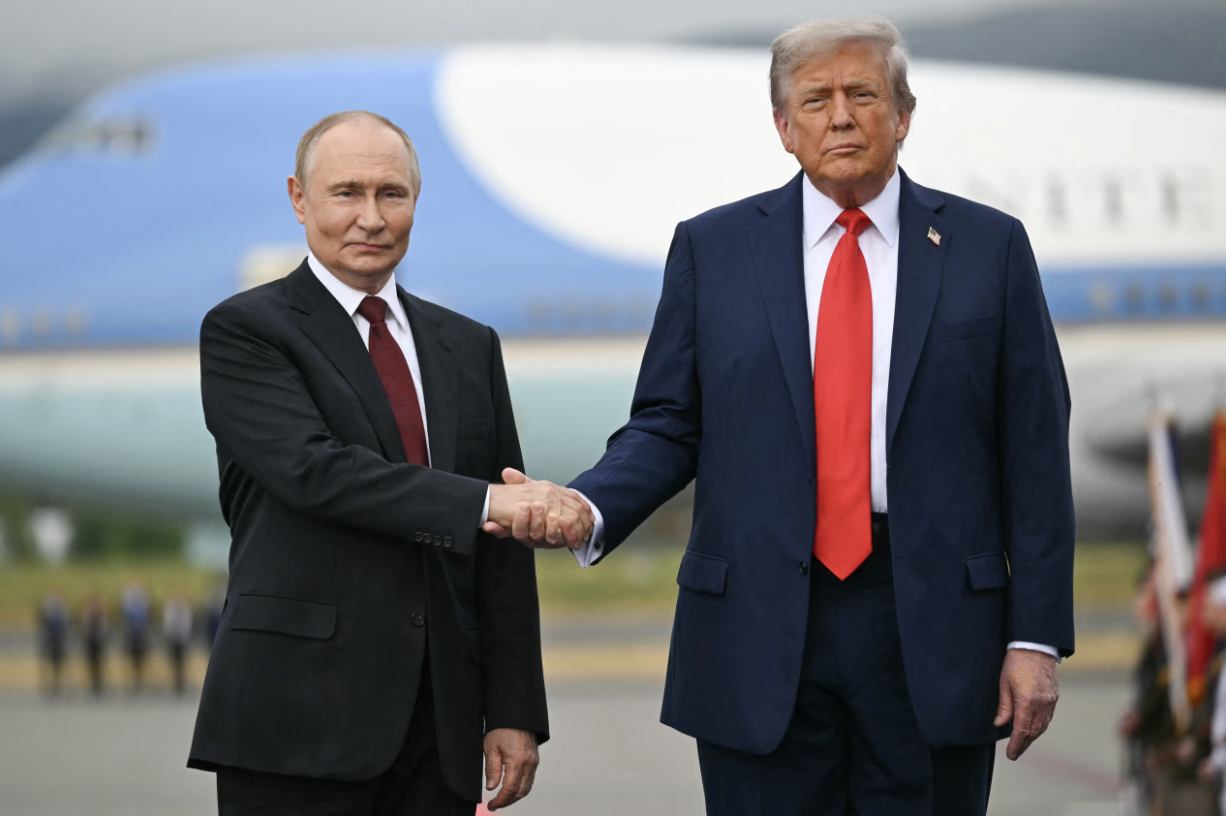
So much about Ukraine seems in flux since President Trump landed in Alaska Friday. It’s been nonstop action with a growing cast of world leaders jumping in.
One thing has remained constant: Vladimir Putin’s demands—the surrender of territory he hasn’t conquered, the end of an independent Ukraine and, in its place, a puppet state from which he can threaten Europe.
Politically, there appear to be three possible outcomes for Mr. Trump.
One is that the American president becomes as tough on Mr. Putin as he has been on Ukraine’s Volodymyr Zelensky. Then he could play a pivotal role in getting Russia and Ukraine to arrive at a deal that results in a durable peace.
Ukraine would remain independent and again become prosperous. Europe would become more secure. By ending a war that’s taking an enormous toll on the Russian Federation, Moscow, while seriously tarnished by its brutal invasion, could gingerly attempt to escape its economic and geopolitical isolation.
If Mr. Trump brokered a successful deal, the talk of his receiving the Nobel Peace Prize would spread beyond Turning Point USA gatherings. The president’s numbers would probably rise before the midterms. A 5-point bump from Mr. Trump’s current 45.8% approval rating in the RealClearPolitics average would help limit the GOP’s losses, perhaps save the Republican House majority.
The second possible outcome: If Russia and Ukraine can’t come to an agreement, the conflict would rage on over battlefields filled with dead soldiers from both countries as Moscow keeps pounding civilian targets from the sky.
A failure to come to an agreement would hurt Mr. Trump’s reputation as a strong leader and a great deal-maker. The outcome would strengthen Democrats and put Republicans on the defensive. The GOP’s losses in the midterms would climb. The president’s powers would be diminished as news of Russia’s brutal repression and images of dead Ukrainian civilians drain his political capital. The world would question American leadership; our enemies would be emboldened.
Then there’s the third possible outcome—a Russian victory. This could happen if there’s no agreement. It could also happen if Russia agreed to something, broke its word as it has many times before, and then crushed Ukraine by brute force. It wouldn’t be easy; the cost in Russian lives would be enormous. Mr. Putin has shown he doesn’t care. An estimated one million of his soldiers have been killed or wounded as he has thrown raw recruits into combat with only three weeks of training.
In addition to being the worst possible outcome morally and geopolitically, this third possibility is the worst scenario for the president and the GOP. The disastrous U.S. withdrawal from Afghanistan and subsequent Taliban takeover broke President Biden’s reputation with voters. He never recovered. Mr. Biden was at 50% approval in Gallup in July 2021; he dropped precipitously after Kabul fell the following month. He bottomed out at 36% in July 2024 before he withdrew from the presidential race.
The defeat of Ukraine by Russia would be similarly disastrous for Mr. Trump. He came to office promising a quick and easy end to the conflict—“in 24 hours,” he said. This raised unnecessarily high expectations. His erratic approach since—buttering up Mr. Putin, strong-arming Ukraine to sign an economic deal with the U.S., supplying needed weapons to Kyiv before slow-playing them, the Oval Office debacle with Mr. Zelensky in February, and his friendlier embrace now of the Ukrainian leader—may all have been examples of Mr. Trump’s famous deal-making moves. Or not. Either way, he has put himself at center stage. The president can’t abandon his starring role even if he wants to. Public opinion in America and the rest of the civilized world would rightly blame Mr. Putin for the invasion itself—but Mr. Trump for allowing it to succeed.